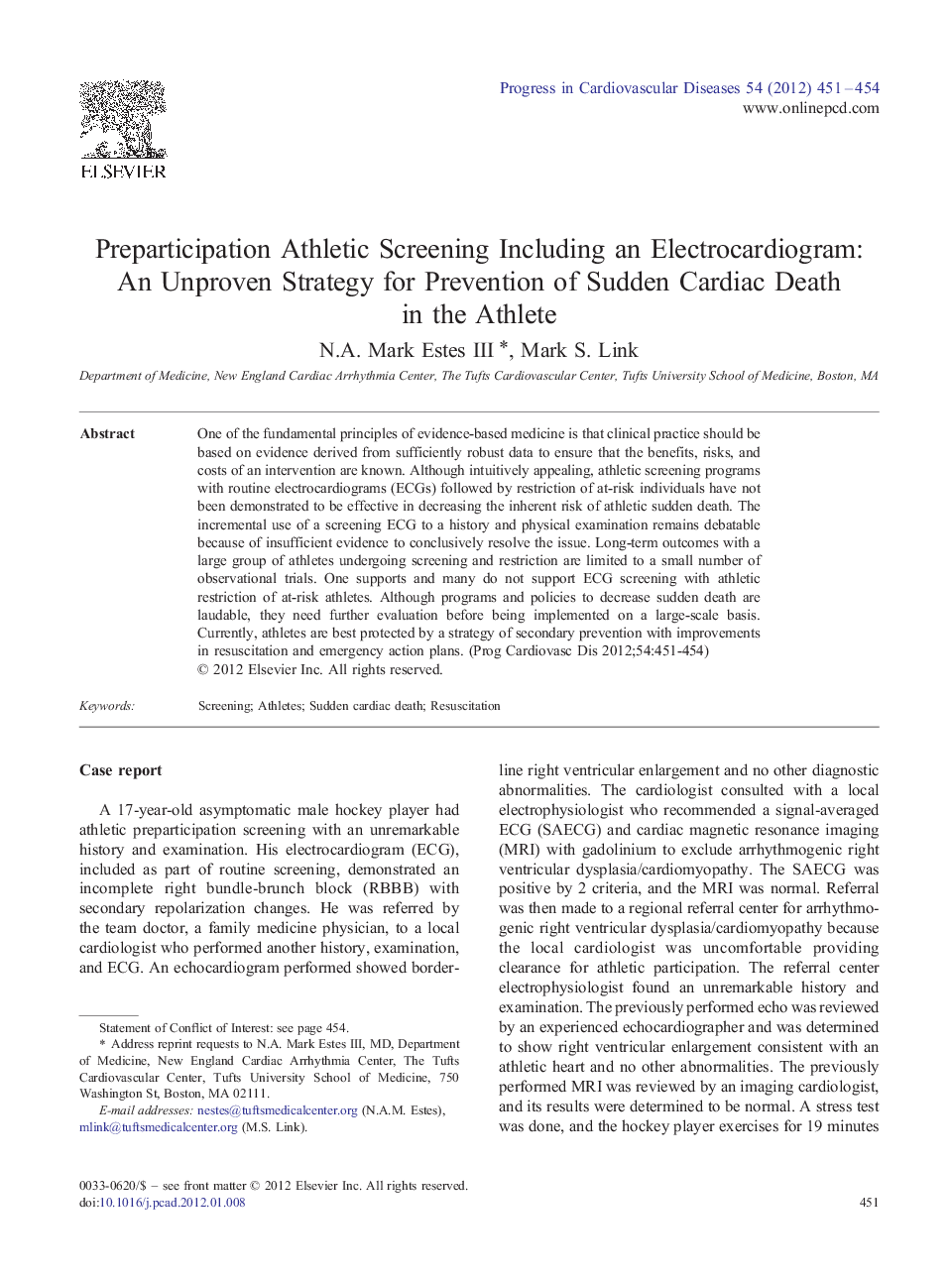| Article ID | Journal | Published Year | Pages | File Type |
|---|---|---|---|---|
| 3006921 | Progress in Cardiovascular Diseases | 2012 | 4 Pages |
One of the fundamental principles of evidence-based medicine is that clinical practice should be based on evidence derived from sufficiently robust data to ensure that the benefits, risks, and costs of an intervention are known. Although intuitively appealing, athletic screening programs with routine electrocardiograms (ECGs) followed by restriction of at-risk individuals have not been demonstrated to be effective in decreasing the inherent risk of athletic sudden death. The incremental use of a screening ECG to a history and physical examination remains debatable because of insufficient evidence to conclusively resolve the issue. Long-term outcomes with a large group of athletes undergoing screening and restriction are limited to a small number of observational trials. One supports and many do not support ECG screening with athletic restriction of at-risk athletes. Although programs and policies to decrease sudden death are laudable, they need further evaluation before being implemented on a large-scale basis. Currently, athletes are best protected by a strategy of secondary prevention with improvements in resuscitation and emergency action plans.
